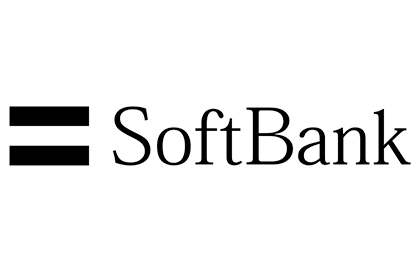This one-page analysis examines a company’s products, services and operational practices and whether they positively contribute or detract from sustainability goals. Our analysis relies on quantitative indicators, leading industry frameworks and covers topics most relevant to the company’s industry.
A primer describing the Double Materiality approach is available here.
SoftBank Group Corp.
Ticker: 9984 JT
ISIN: JP3436100006
Market Cap: JPY 7,281 billion
GICS Sector: Communication Services
SICS Industry: Telecommunication Services
Country: Japan
SMS theme: Building Better Markets
SMS sub-theme: Empowering Shareholders
Contribution to theme: Negative
Company Description
SoftBank Group Corp. operates as a holding company, and through its subsidiary "SoftBank", provides telecommunication services. The Company offers microprocessor IP, sales of design software tools, and related technology services. SoftBank Group also operates investment businesses.
Revenue exposure by country/region: Japan (89%).
Contribution to the sub-theme objectives:
SoftBank detracts from our sub-theme objectives because the concentration of decision-making power in the hands of its founder and CEO undermines the company's strategic objectives. The entrenched corporate culture stifles innovation, and the CEO's investment decisions, often justified by 'feeling the force,' have embroiled the company in numerous scandals related to its investments.
Sub-theme indicators:
Operational Performance
(Laggard, Aligned or Leader)
SASB Material Topics for the Telecommunication Services & Investment Industries: Energy Management, Customer privacy, Data security, Competitive behavior, systemic risks management, and incorporation of ESG factors in investment.
Assessment: Laggard
SoftBank is involved in global investment activities and announced in May 2021 that it was working to integrate ESG factors in its investment process. It discloses short guidelines but does not disclose its process in detail.
Energy consumption intensity increased by 24% in 2022 to reach 165.99 gigajoules per $million in revenue.
SoftBank acknowledges that technology disruptions can happen in its activities and has developed measures to tackle them.
The company has a privacy policy and has implemented measures to address cybersecurity risks.
Nearly all of the decision making power for Softbank is in the hands of its founder, CEO, Chairman and shareholder (with 30% of shares), which makes it difficult for the company to be properly run.
Only 50% of the board of directors is independent (according to Refinitiv Eikon criteria).
Controversies: violation of anti-monopoly law in China, investment implications with Wirecard which faced an accounting scandal, and information leak by an employee.
Product/Service Impact
(Negative, Neutral or Positive)
Assessment: Neutral
SoftBank, a diverse multinational conglomerate, has made substantial investments across various sectors worldwide. While the company has engaged in renewable energy and circular economy initiatives, these ventures remain a minor fraction of its revenue compared to its primary focus on telecommunications.
The company's investment strategy, spearheaded by its founder and CEO, has involved deploying over US$84 billion into start-ups from 2017 to 2021, often guided by intuition rather than transparent criteria. This approach has led to several high-profile scandals linked to its investment choices.
SDG Alignment:
A downloadable version of the Double Materiality Analysis of Softbank Group Corp. is available in the pdf attached.






